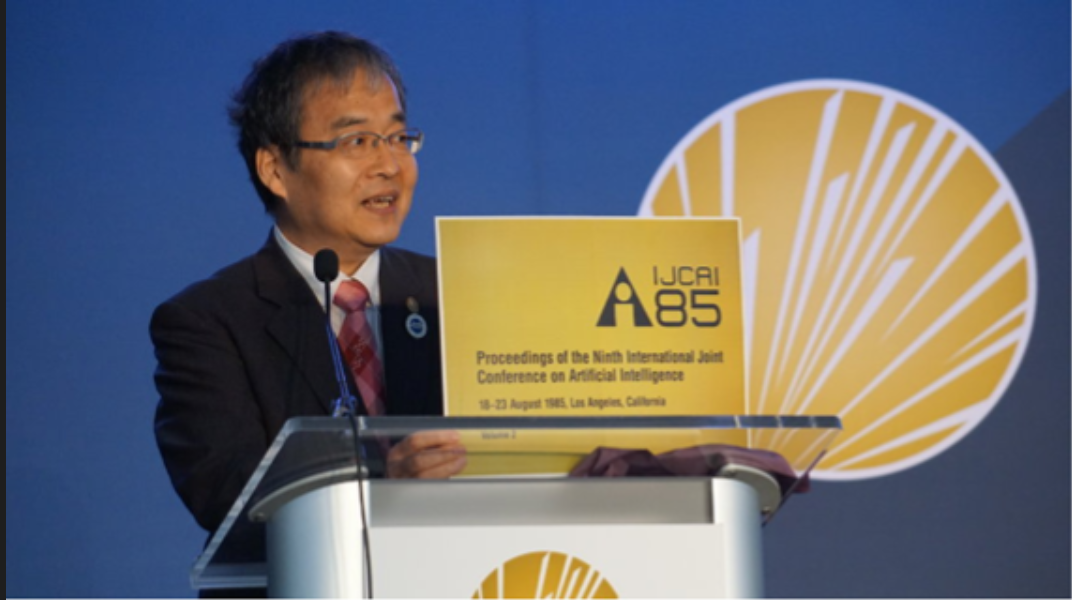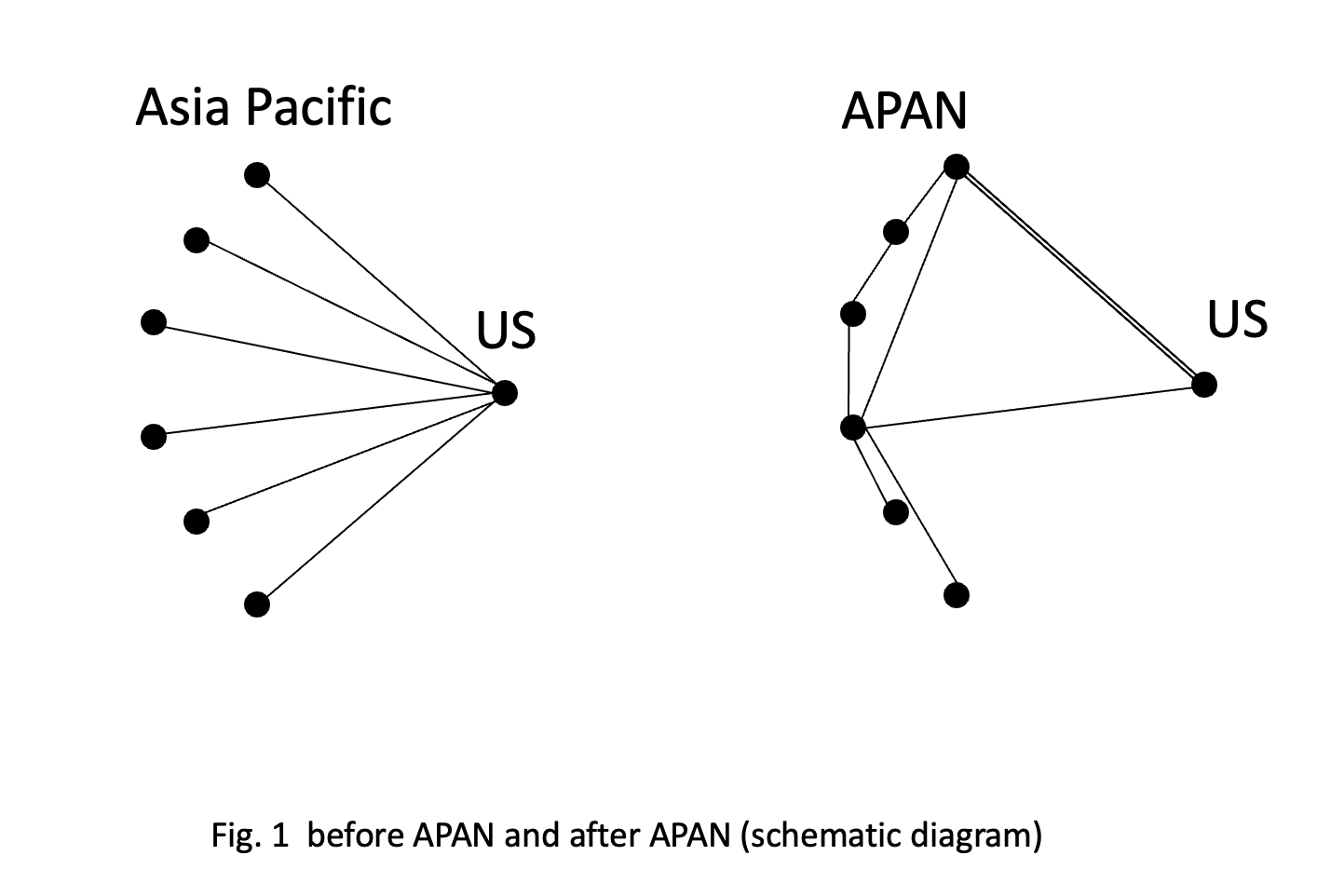Interview
|
5 Mins with Prof. Shigeki Goto
|
|
Shigeki Goto submitted on May 16,2022
|
|
|
|
Q1. Who are you, where are you?
My name is Shigeki Goto. I live in Tokyo, Japan.
|
|
Q2. Where do you work, or have you retired to, and what do you do?
I retired from Waseda University in March 2019. I am now a professor emeritus at Waseda
University. I am a trustee of JPNIC (www.nic.ad.jp/en/)
since March 1997 and continue to serve JPNIC after I retired from the university. I
became an outside director of KDDI (www.kddi.com/english/) in June 2020.
|
|
Q3. What are the challenges in your work/retirement? How do you tackle
them?
I started my career as a computer scientist. I had a vision of automatic programming,
which would be realized by Artificial Intelligence (AI). I was a visiting scholar at
Stanford University Artificial Intelligence Laboratory (SAIL) to pursue the goal from
August 1984 to August 1985. I was a user of ARPAnet (sg@sail.arpa) and I realized the power of computer
networking. I presented my paper at IJCAI 85 (International Joint Conference on
Artificial Intelligence 1985 at UCLA). Unfortunately, my dream was not fully realized.
After I returned to Japan, I gave up my research plan and switched my research area from
AI to computer networking. Now, I am investigating my earlier research vision from
various perspectives.
|
|
Q4. What is your history with APAN?
How long have you been associated with APAN, and what were you involved in?
I am one of the founding members of APAN, because I attended a conference [1] where we
discussed the basic idea of APAN. When APAN started in 1997 [2], I became a deputy chair
of APAN.
[1] The Asia-Pacific Economic Cooperation (APEC) Symposium for Realizing Information
Society in the Field of R&D Activities, Tsukuba, Japan, 27--28 March 1996.
[2] Kilnam Chon, An Asia Internet History – Second Decade (1991—2000), Section 7.2 APAN,
https://sites.google.com/site/internethistoryasia/book2
|
|
|
|
Q5. Can you tell us about one or two interesting experiences you’ve had with the APAN
community?
My students presented their paper at APAN Research Workshop in August 2008 [3]. The
paper is the most frequently referred conference paper in my laboratory. According to
“research-gate” statistics, the citation index is increasing even these days.
[3] Yuan Wei, Daisuke Yamada, Suguru Yoshida and Shigeki Goto, A New Method for
Symmetric NAT Traversal in UDP and TCP, APAN Network Research Workshop, New Zealand,
August 2008.
|
|
Q6. What value does/did APAN bring to you personally, and to your work?
Through APAN activities, I made many good friends in almost all countries in the Asia
Pacific region. They have helped me on various occasions, not limited to APAN projects.
They are my real treasures.
|
|
Q7. How do you think APAN should improve, develop and add to what it does?
APAN has successfully realized the intra-Asia Pacific computer network (Fig. 1). It was
a challenging project with excitement for us, the first generation of APAN community. I
hope we can spend some time discussing our current and future issues and our mission.
|
|
Q8. What do you like to do when you are not working?
I started a Chinese physical exercise “Tai Chi” in May 2020, because I wanted to control
my weight during “stay home” days against the COVID-19 pandemic. There are several Tai
Chi video clips on YouTube. I successfully lost 6kg weight with Tai Chi exercise
combined with one-hour bicycle riding every day. It is a pity that I cannot understand
the explanations for the Tai Chi movement in Chinese. Recently, I installed an
application program “Hello Chinese” on my iPad to learn basic Chinese. Still, it is
difficult for me to understand the Chinese language. 我认为汉语很难
|
|
Q9. Can you please suggest others in our community who you think should be
interviewed? We will follow up with them. We may have more than one interview per
newsletter.
As I mentioned earlier in my answer to Q4, there is a good record of the beginning of
APAN. Still, it would be meaningful to interview the notables who founded APAN.
Professor Kilnam Chon (KR), Mr. Kazunori Konishi (JP), Dr. Tan Tin Wee (SG), and
Professor Michael McRobbie (AU, now in the US).
|
|
Photo: ucla.png
Dr. Goto shows the cover page of IJCAI 85 proceedings in his acceptance speech for the
Internet Hall of Fame induction ceremony at UCLA, 2017.
Fig. 1: APAN.pptx
before APAN and after APAN (schematic diagram)
|


